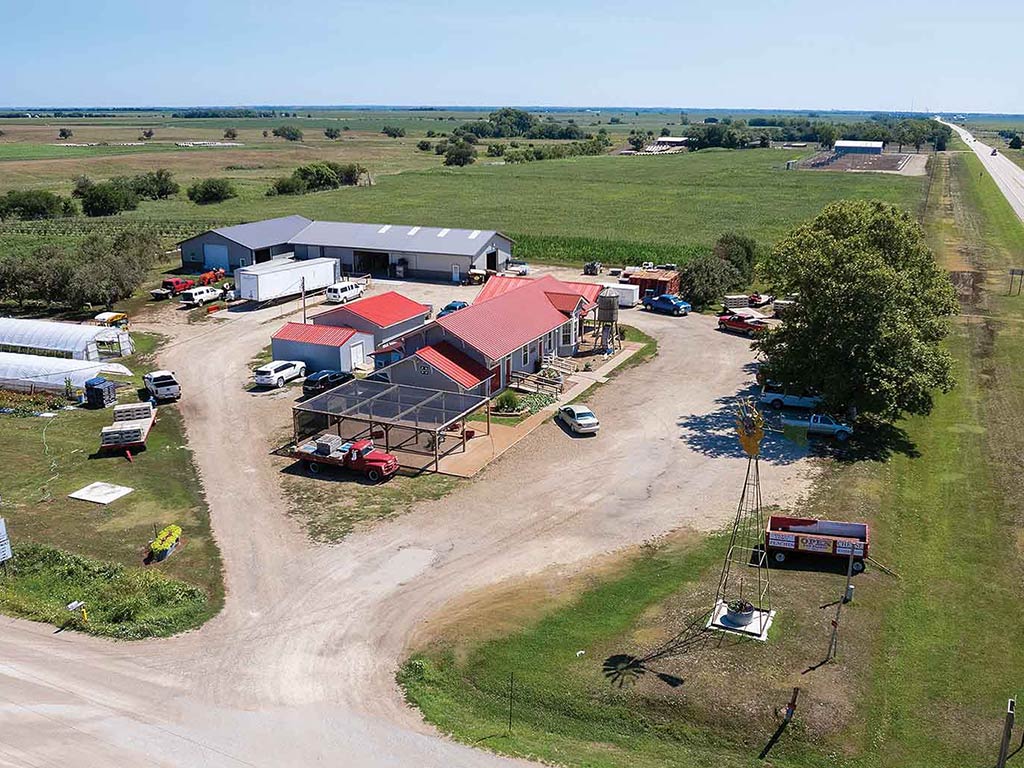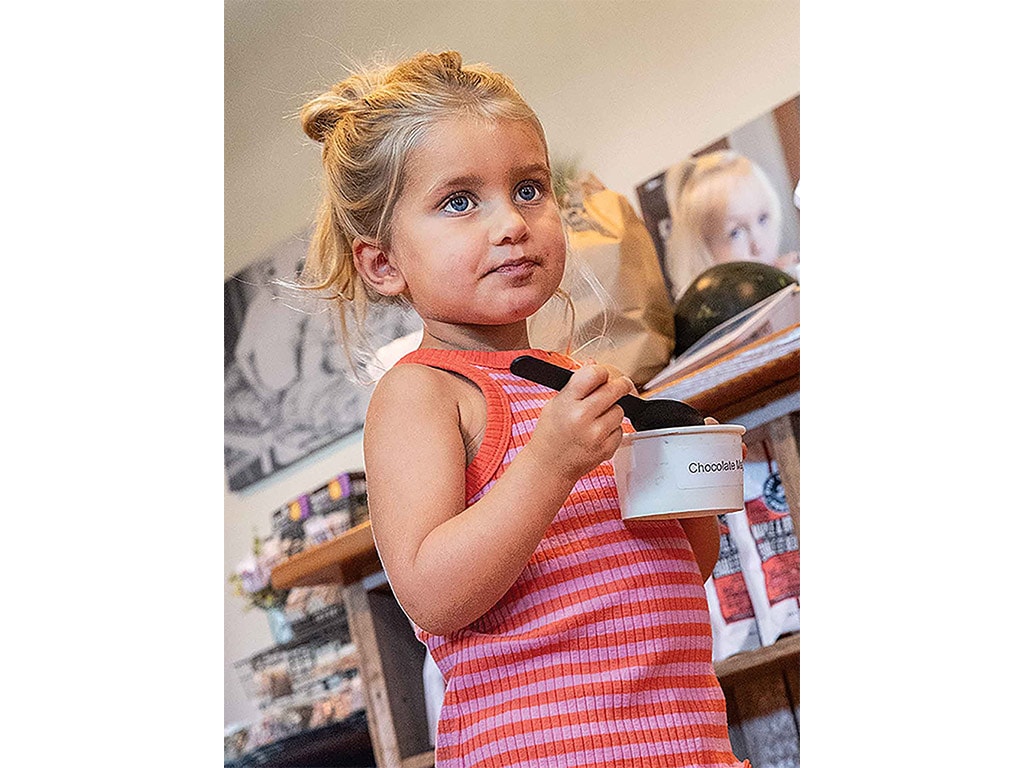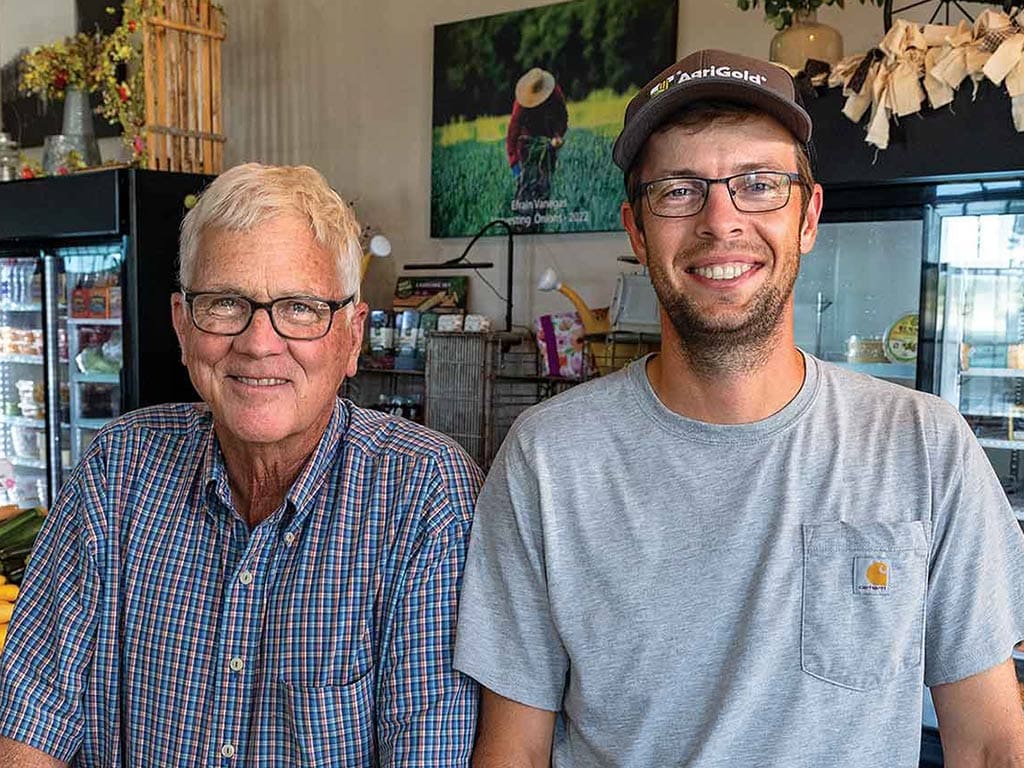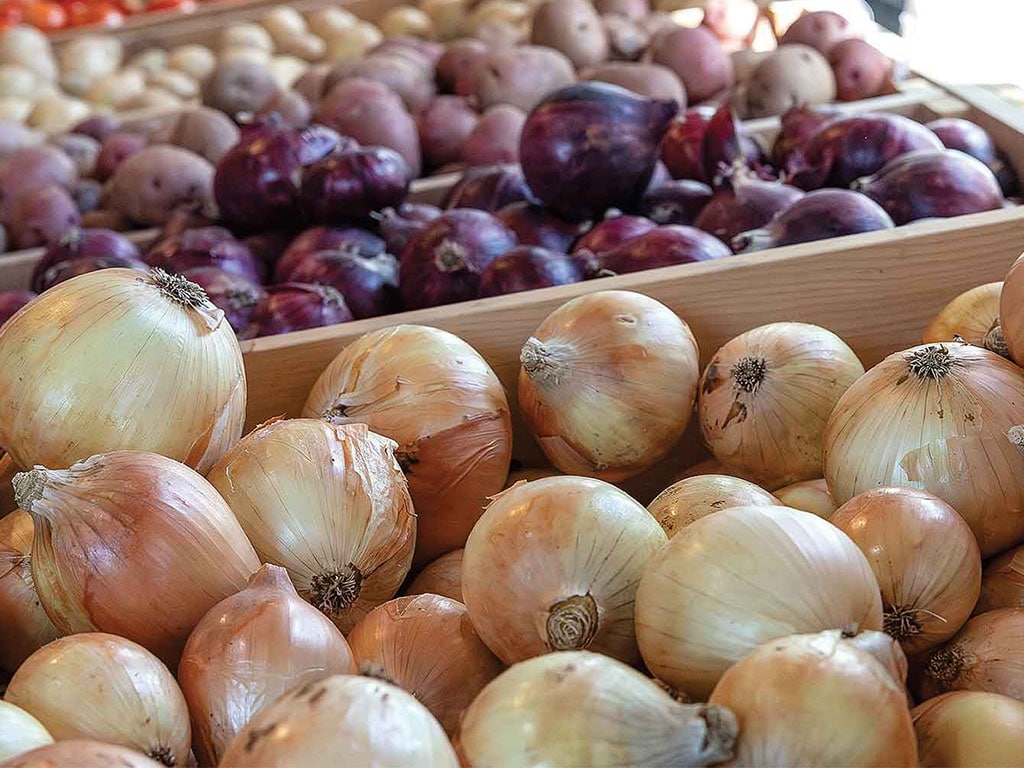Agriculture, Sustainability December 01, 2024
Produce on the Plains
Food crops thrive in corn and soybean country.
by Bill Spiegel
The Republican River Valley in north central Kansas is dominated by fields of corn and soybeans. From the sky, fields are circles, watered by center-pivot systems drawing water from either the river or canals delivering water from a nearby reservoir.
Yet near Courtland, Kansas, at the junction of U.S. Highway 36 and Kansas Highway 199, an oasis of apple trees, vine crops, berries, vegetables, and flowers have taken root alongside a transplanted and refurbished train depot that serves as retail space. This is the headquarters of The Depot Market—the culmination of Dan Kuhn's childhood dream.
"I was always interested in growing apples," recalls Kuhn, who grew up in the suburbs of Kansas City, Kansas. "I just wanted to be a farmer."
Without a farming background or accessibility to land, he took an unusual path to agriculture. While attending college at Kansas State University in Manhattan, Kansas, he rented a few orchards outside of town. By the time he graduated college in 1979, he began working on a 25-acre orchard near Courtland.
Dan and his wife Kathy raised seven children on that farm. "Through the action of divine providence, we grew that operation over the years until now," he says.
Today, The Depot Market features 140 acres of pumpkins, plus 40 acres of watermelons, 10 acres of cantaloupe, and several acres of other fruits and vegetables grown in the sandy soils of the Republican River Valley.
Above. Regina Hanna sells beef by telling the story of cattle ranchers, big and small. Beltie beef is tasty and lean, with just 2% fat; Hanna's customers like the chance to explore various cuts in their cooking. About 75% buy online.
Muscle and markets. Kuhn eventually started his own orchard, and soon added a few acres of melons, tomatoes, and cucumbers. "We just gradually grew as we figured out how to do it," he says.
Two things are required for a fruit and vegetable farm, Kuhn explains: muscle and markets.
For muscle, he has relied on H2A visa workers from Michoacan, Mexico, since 2007. Each year, nearly 20 H2A employees help The Depot Market.
On a day when a half-dozen or so employees are picking watermelon and cantaloupe, Kuhn describes how specialty crop farming has similarities to row crop production. In the fall, he plants a cover crop of cereal rye to suppress weeds in the spring. The following March, he tills a strip in the cereal rye, lays down a row of plastic, and transplants watermelon and cantaloupe plants that were started in his greenhouse. Pumpkins are direct seeded. When the H2A workers return from Mexico, they go to work in the field right away.
Teams of workers pick ripe fruit three times a week.
"I am so proud of these guys," Kuhn says. "They have been doing it so long and they don't make mistakes."
The Depot Market is Kansas' largest pumpkin producer. Most are jack-o'-lantern pumpkins, but the farm grows a variety of novelty pumpkins that consumers use for decoration—white, blue, miniature. "We have acres of just the weird stuff," he says.
In 1989, Kuhn moved Courtland's train depot to its current location, renovating it to serve as retail space and as headquarters for the farm operations.
All the produce grown on The Depot Market farms is sorted, cleaned, and packed in a warehouse/cold storage facility on site. Kuhn has developed a loyal retail base for his produce; pumpkins, for example, are shipped to stores from Minnesota to Louisiana.
The Depot Market retail shop features locally grown produce plus seasonal items. Customers come from miles around for cider slushes, apple cider donuts, ice cream, and other treats.
When Courtland's restaurant closed in 2024, Kathy began offering lunch specials one day each week, too. The community is in a food desert, according to the North Central Regional Planning Commission. Therefore, the Market fills a huge need for the community.
"I like the homegrown produce," says customer Danielle Russell. "It's fresh and there is a lot to choose from."
The Market gives Kuhn a chance to visit with customers.
"We have people who tell us when they were little, they used to come to the orchard with their grandparents every year to pick apples. That may be one of those happy childhood memories that people treasure.
"To be able to provide that is very satisfying," Kuhn says. "I love that side of the business. This market has been a great joy." Kuhn believes other farmers could adopt the Depot model.
"Kansas needs a lot more vegetable growers, but we need them to just take care of their community," he explains. "What I'm doing is not for everybody. But people who like to garden can make a living doing it.
"It's hard work, and you're not going to get rich, but if you love it, that is the key thing," he says.
Apples again. In 2007, Kuhn tore out the apple orchard that first drew him to north central Kansas. In 2015, he hired Mark Stadler, a Wichita native, as an employee. Now, Sadler and his wife Emilee, are co-owners of the farm.
Ironically, Mark wanted to begin growing apples again. His concept was a high-density orchard, where dwarf rootstock is planted three- to five-feet apart on rows 10-14 feet apart. Growers train branches to trellises in order to capture as much sunlight as possible, allowing for more apples to be grown in less space.
At first, Kuhn was resistant to getting back into the apple business. But the more he thought about it, the more it seemed like history repeating itself.
"Mark isn't the first young guy who moved to Republic County and wanted to be in the apple business," he says. ‡
Read More

SPECIALTY/NICHE
A Sport of Beauty
Grace, athleticism...and a cloud of dust.








